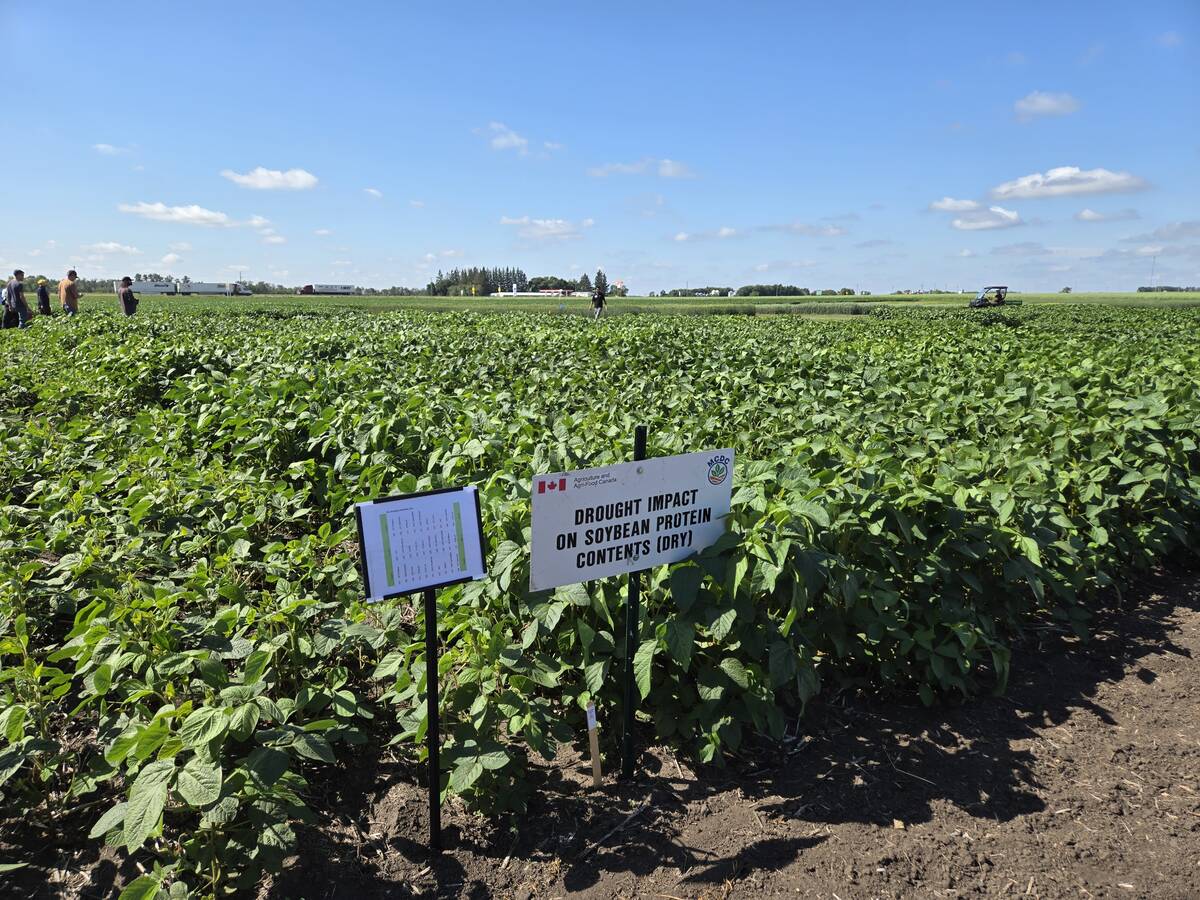Livestock producers in Saskatchewan and Manitoba say they could be out $2 million after a Winnipeg trucker stopped operating and didn’t pay them.
Jason Becker of Calder, Sask., said he hasn’t been paid for two loads of fat cattle that G &M Livestock took to the United States for slaughter in January.
He said the American plant contacted him Feb. 14 and told him the trucking company had been paid.
“The plant has paid him and he won’t pay us,” Becker said March 2.
Read Also

Carberry field day looks for agriculture solutions
Manitoba farmers explored research solutions for resilient crops, perpetual agronomic issues and new kinds of agricultural products at a field day at the Manitoba Crop Diversification Centre in Carberry on Aug. 6.
Producers in his area haven’t been paid for 5 1/2 loads, he added.
He has also heard of a producer from Kelliher, Sask., who is out money, as well as a hog producer.
He estimates his own loss at $70,000 to $100,000.
The Saskatchewan agriculture ministry suspended G &M’s dealer licence Feb. 25 and said producers who hadn’t been paid could make claims against the company’s bond.
G &M owner Gerald Ballegeer did not return phone calls.
His company’s Saskatchewan bond is worth only $40,000.
“That won’t even cover the cost of one load of cattle, so it’s a joke,” Becker said.
Cam Wilk, the ministry’s manager of livestock inspection, said the bonds are based on the volume of cattle that dealers market each year.
For example, those who handle less than 500 head post a bond of $25,000, while those who handle 501 to 20,000 head post $40,000.
The maximum bond is $250,000 for dealers who handle more than 200,000 head.
Dealers file statutory declarations about how many animals they move and the ministry tracks livestock movement to confirm those numbers.
Wilk conceded that the bond in this case isn’t adequate to cover the claims against it, considering that the general rule of thumb is that a load of livestock is worth about $50,000.
He said six producers have made claims worth $350,000. The money from the bond will be prorated to eligible claimants once their claims are verified.
The ministry plans to ask the industry if a patrons’ assurance fund is needed. It would supplement the bond system rather than take its place.
Wilk said there is provision in government regulations to establish such a fund, which means it wouldn’t take long to put in place if the industry decided that’s what it wanted.
The possibility of establishing an assurance fund was also discussed after Arcola Livestock Auction ceased operating in 2003.
Becker said he used G &M for five years and didn’t have problems until recently.
He said Ballegeer had phoned earlier to say he couldn’t pay him now but would be able to in one to two years.
Becker then received a letter Feb. 28 from Ballegeer, which said G &M had ceased operations and was unable to pay its unsecured creditors.
“We’re in great financial distress now,” Becker said.
“I’m pretty sure our money is gone.” He said there could be other producers in the same situation who he hasn’t heard about.
Becker has contacted the RCMP.
Sgt. James Morton of Yorkton, Sask., said his detachment is assisting three other detachments: Langenburg has three files, Ituna has one and Rose Valley has one.
It is also working with RCMP in Manitoba as well as brand inspectors.
Morton said the investigation is complex because it involves two provinces, another country, brokers, truckers and many other players.
“These are very lengthy and time consuming investigations because of that complexity,” he said.















